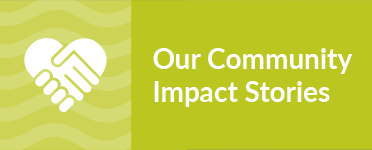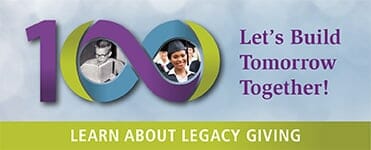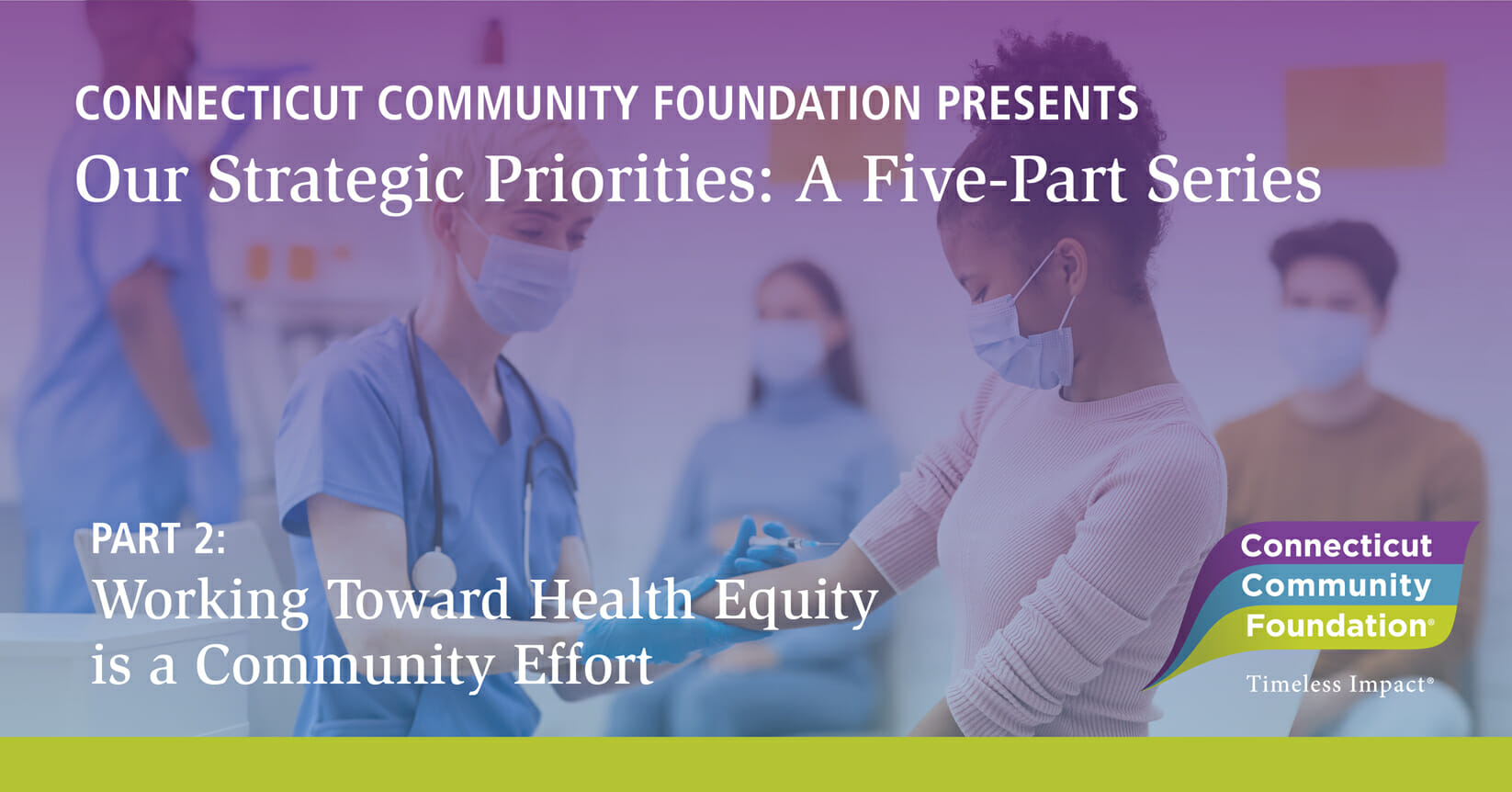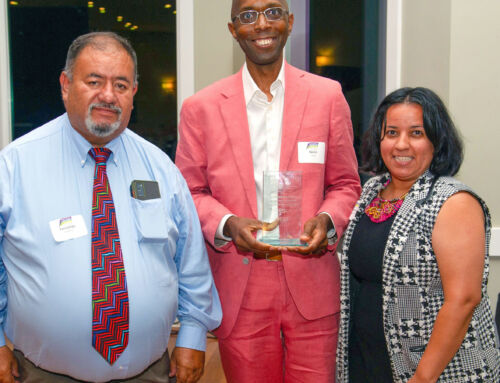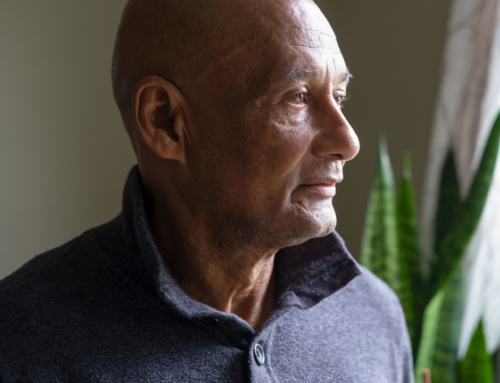As the founder and executive director of Madre Latina, Yoellie Iglesias does more than oversee health and wellness programs such as the Mariposa Project and Health on Wheels. Iglesias also acts as a personal clearinghouse for healthcare information for Waterbury’s Latinx community. At the start of the COVID-19 vaccine rollout, Iglesias asked her network to find out if people were planning on getting vaccinated. “The majority said no,” she says. “They didn’t trust the healthcare system.”
When Iglesias got vaccinated she made a point to post a picture of her experience on Facebook. “Immediately I saw a positive reaction,” she says. “People wanted to get information on the vaccine. They wanted to know if they could get it at their local Walgreen’s. Suddenly they’re asking, ‘How can I get on the schedule?'”
Madre Latina is a longtime grantee of the Connecticut Community Foundation, but Iglesias’s story shows that addressing disparities in healthcare goes beyond providing programs and services. “Americans assume that if you need help you’ll go get it,” Iglesias says. “We don’t work like that. We don’t think like that. As Latinos we need to trust you before we ask you for help.”
Traditionally the philanthropic community has often failed to address these kinds of cultural and community barriers. But through its intentional focus on race and equity, the Foundation hopes to change that, especially when it comes to such a complicated issue as healthcare disparities. “We used to make a grant in this town and then another grant over in that town,” says Ellen Carter, Vice President of Program and Strategy. “We now realize that we can’t separate grantmaking from the larger community where the grantmaking is happening.”
For systemic change to happen it’s helpful to think of the healthcare system as a series of interlocking gears. All healthcare stakeholders—from traditional hospitals to community-based health centers to individual nonprofits to resident volunteers—both make their individual contribution and contribute to the function of the whole. The Foundation’s goal is to work strategically in order to amplify and reinforce everyone’s efforts.
Angie Matthis, executive director of the Greater Waterbury Health Partnership (GWHP), is working at the most macro level. GWHP, of which the Foundation is a founding partner, acts as the connective tissue between hospitals, community health centers, government health agencies, philanthropic organizations and healthcare nonprofits in the Greater Waterbury region. Its goal is better coordination between these different entities, but its mandate is to do so in a culturally sensitive way that is centered on equity.
“We’re not experts in racial justice and equity,” Matthis says. “We may not have the right lived experiences on our staff. But that’s why we’re partnering with a group such as Waterbury Bridge to Success. That organization is led by Black women and has a diverse team. We can leverage and compliment each other.”
Working at the clinical level, Dr. Becky Eleck Bruce, medical director of Wheeler’s community health centers, echoes the need for a holistic, community-based approach. Eleck Bruce, who is a trustee of the Foundation and chairs its Health and Environmental Justice grant committee, was fortunate to receive racial equity training at the University of Connecticut medical school. But early in her residency, she noticed how the focus turned technical.
“Instead of talking about medicine in an integrated way suddenly we’re more concerned with how to correct an electrolyte imbalance,” she says. “It’s all about what’s going to be on the board exam. But once you’re in practice you start to see how patients struggle. If you’re fighting every day to take care of your family it’s hard to think about caring for yourself.”
Eleck Bruce says that the blind spots and biases of the medical establishment make organizations like Madre Latina even more essential. “One of the things I’ve learned by being on this committee is that the community-based organizations make the dollars travel farther,” she says. “Larger organizations have bigger donor pools and more resources, but the impact of Madre Latina just blows my mind.”
The power of grassroots change extends to individuals as well. Liz Bullard is a Waterbury resident, community activist, and secretary of the East End Community Club. Working with a grant from the Foundation, Bullard is building a community garden near her home in District 5. She hopes fresh food will help address the neighborhood’s status as a food desert. Bullard also notes that for a lot of people in communities of color there’s a tragic absence of safe, community-oriented places to congregate.
“People in the community have great ideas,” she says. “But they don’t have resources to realize their vision.”
Bullard tells the story of how she identified a patch of land that would be perfect for a community garden, only to learn that the Waterbury Department of Transportation wanted to sell it for $20,000. What happened next was a familiar story of bureaucracy, red tape, and good old-fashioned inertia. But through the support of community leaders, her state representative, and the Foundation, Bullard was able to secure the spot.
“Getting people excited is the easy part,” she says. “The learning experience was in making it happen, in making it official.” Now Bullard is just waiting for the weather to improve so she and her fellow community gardeners can get started. Eventually, she hopes to create a space both for growing healthy food and for getting people outside and active. Bullard knows that addressing health disparities is a big undertaking, but shows how individual people can make a difference.
“I just want to get some dirt and make things grow,” she says.


